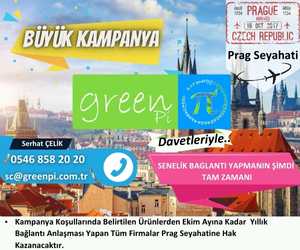Kategori : ELECTRICITY ENERGY NEWS, ENERGY AGENDA NEWS - Tarih : 18 August 2021
Pooling its expertise in mechanical engineering, Bosch offers companies factory equipment for battery production from a single source, ranging from individual component and software solutions to complete assembly lines. “We know like the back of our hand about batteries and how batteries should be manufactured,” said Rolf Najork, Bosch’s board member responsible for industrial technology.
 When entering this business, Bosch aims to increase vertical integration in mechanical engineering and achieve annual sales of approximately 250 million euros with battery manufacturing equipment by 2025. Using its production knowledge in its own facilities, Bosch is starting the full-scale production of 48-volt 2nd generation batteries in its factory in Eisenach, Germany. The company is investing around 70 million euros this year to expand its local manufacturing operations.
When entering this business, Bosch aims to increase vertical integration in mechanical engineering and achieve annual sales of approximately 250 million euros with battery manufacturing equipment by 2025. Using its production knowledge in its own facilities, Bosch is starting the full-scale production of 48-volt 2nd generation batteries in its factory in Eisenach, Germany. The company is investing around 70 million euros this year to expand its local manufacturing operations.
Battery market is growing by 25% per year
Experts predict that lithium-ion battery demand will rise from 200 GWh in 2019 to over 2,000 GWh in 2030 (Source: BMWi, 2021). Currently, more than 60% of demand comes from electromobility (Source: VDMA, 2020). Bosch offers a portfolio of solutions from 48-volt mild hybridization to all-electric propulsion systems and fuel cells. The company has extensive manufacturing expertise with experience in battery development for cars as well as e-bikes, power tools and kitchen appliances. Bosch plans to use this know-how to meet growing demand. Najork said, “We assume that the global battery market will grow by 25% every year. Bosch is doing its part to meet this demand.”
Webasto battery production is based on Bosch technology
One of Bosch’s pilot customers in this area is Webasto, which equips its battery factories with Bosch technology. Webasto, a leader in battery pack production, has been operating in the field of electromobility since 2016 and focuses on battery systems for electric vehicles as well as high-voltage heaters and charging solutions. Manufactured at Webasto’s factory in Schierling/Germany, the battery serves as a prototype for new production facilities such as Dangjin in Korea. Bosch offers automated assembly lines for welding and bonding battery cells. For this purpose, various functions of module production are combined, such as cell cleaning, package processing with access control, as well as special laser welding process and end-of-line quality control for quality assurance. Thanks to the sophisticated line concept, there is no particle contamination during the process. The robots automatically assemble the cell stacks in a two-step procedure consisting of delivery technology and laser welding. With the comprehensive safety concept, it is possible to electrically connect the battery module using a highly dynamic and precise laser welding process.
Bosch facilities display impressive battery expertise
Bosch believes that industrial technology will also make progress in its own factories. At the company’s Eisenach Plant, 48-volt batteries are produced for the hybridization of passenger cars. Such batteries reduce fuel consumption and CO2 emissions by up to 15 percent, especially in internal combustion engine vehicles. In Eisenach, the 2nd generation also goes into large-scale production. During production, more than 90 components go through more than 100 process steps. Electric ‘tailwind’ for bicycles comes from Hungary. Bosch’s Miskolc Plant has been producing high-performance e-bike batteries with an extended product range and long service life since 2015. To create a perfectly synchronized e-bike system, the batteries have to go through around 20 stages during the manufacturing process before the drive system and display are combined. Access control for cells, module and package assembly and battery management system integration are among these stages. Fully automated local production ensures high quality standards, maximum battery safety and a stable supply chain for e-bike manufacturers. Bosch will showcase its electromobility solutions at IAA Mobility, which will be held in Munich from 7-12 September.
Bosch offers manufacturers comprehensive services
Bosch serves both as a general contractor in plant construction and as a supplier of individual components and software solutions. “As a leading IoT company and successful machine manufacturer, we present the opportunity to organize the factory of the future,” Najork said. Bosch develops equipment, machinery, hardware and software to produce battery modules and battery packs made of cylindrical, prismatic or pouch cells and used in electric vehicles. Clamping, welding and gluing are used to tightly bind the cells together. Depending on the needs, Bosch offers a partially or fully automatic line supply.





